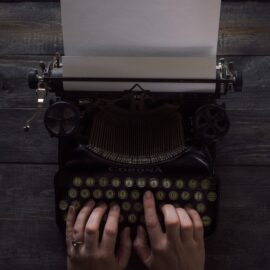

This article is an excerpt from the Shortform book guide to "Unconditional Parenting" by Alfie Kohn. Shortform has the world's best summaries and analyses of books you should be reading.
Like this article? Sign up for a free trial here .
What are some examples of rewards and punishments for children? Is a reward and punishment system healthy for kids? What is an effective alternative?
Author Alfie Kohn says parents who mainly focus on whether or not a child is being good or bad are creating a system of rewards and punishments with potentially harmful effects on children. In Unconditional Parenting, Kohn gives examples of rewards and punishments, including why they don’t work and some alternatives.
Keep reading for Kohn’s examples of rewards and punishments and what parents can do differently.
Examples of Rewards for Children
Parents commonly use rewards (or the promise of rewards) to encourage behavior they want from their children. Kohn’s definition of rewards is extremely broad: He groups intangible rewards such as hugs and praise with more conventional ones such as food and gold stars.
What Counts as a Reward?
A reward is anything a child receives in return for “good” behavior. Here are some examples of rewards for children:
- Gifts, food, and money
- Good grades
- Gold stars
- Affection
- Praise
| Rewards: What Does the Research Say? Kohn cites quite a bit of research, mostly springing from a wave of academic interest in rewards and punishments in the 1970s, to support his case that rewards are always either unhelpful or damaging. However, the actual picture may be more complex—even if we only look at papers published during that period. While children do seem to lose interest in activities after they get a promised reward for doing them, “high-value” rewards (in this case, rewards that the children had nominated beforehand that they wanted to receive) seem to make children more likely to keep doing boring tasks after they’re allowed to stop. More recently, researchers found that rewards plus either peer modeling or repeated exposure helps kids to not only eat more fruits and vegetables but also to like them more. For example, rewarding 4- to 6-year-old kids with a sticker every time they tasted a new vegetable made them like the new vegetables more. The issue of praise may also be more complicated than Kohn suggests. One study, for example, found that while material rewards made 3-year-olds less likely to share, praise didn’t. It may be that consistent positive feedback is more effective for younger children or children in the early stages of developing a skill. |
Examples of Punishments for Children
Parents commonly use punishments (or the threat of punishments) to discourage behavior they see as problematic. As with rewards, Kohn’s definition of punishments is broader than most common definitions: He includes isolation and the withdrawal of parental attention alongside physical punishments and temporarily not allowing a child to do something she enjoys.
What Counts as a Punishment?
A punishment is any deliberate attempt to make a child suffer following “bad” behavior. Here’s some examples of punishments for children:
Taking away “privileges” (things the child enjoys). Kohn argues that taking away privileges isn’t ideal because it doesn’t directly link the problem behavior with the consequence—unlike, for example, making a child clean up the colorful crayon mural she’s drawn on the walls.
Physical punishments such as spanking, slapping, or handling a child roughly when they misbehave. These punishments are especially damaging because they teach children that it’s okay to use violence to solve problems, which may be why they’re also linked to aggressive behavior. Kohn notes that even in communities in which parents use spanking more (and in which parents are more likely to justify it with, “It didn’t do any damage to me”), children still show adverse outcomes.
“Love withdrawals,” such as time-outs, ignoring the child, and briefly pulling back emotionally from the child. Kohn says that these are ways of inflicting emotional pain on the child and that they can be even more damaging than physical punishments.
Criticism. Kohn argues that criticizing kids is damaging to their self-esteem in the long run. He suggests that if you have to criticize, try to do it as little as possible and always make sure the criticism is specific (for example, “Pulling the cat’s tail hurts her” rather than “Don’t hurt animals”).
| Alternatives to Punishment: Janet Lansbury on Physical Restraint and Holding Boundaries Kohn talks about a lot of things parents shouldn’t do, but he doesn’t offer many concrete alternatives. In the short term, the reality is that if a child is doing something that might injure herself or others, you need to intervene. In these cases, well-known parenting writer and podcaster Janet Lansbury recommends physically restraining the child as necessary and saying “I won’t let you… (hit, bite, kick, etc.)” Lansbury also talks about the need for parents to set and hold boundaries, which Kohn doesn’t see as very important. While Kohn believes that unconditional acceptance alone makes kids feel safe, Lansbury believes that boundaries are also crucial and that kids—even as they’re throwing a tantrum—understand strong boundaries as a form of love. |

———End of Preview———
Like what you just read? Read the rest of the world's best book summary and analysis of Alfie Kohn's "Unconditional Parenting" at Shortform .
Here's what you'll find in our full Unconditional Parenting summary :
- How to raise kids to be self-confident, independent, and compassionate
- Why you should throw away the standard parenting rulebook
- Why rewards and punishments cause more harm than good






